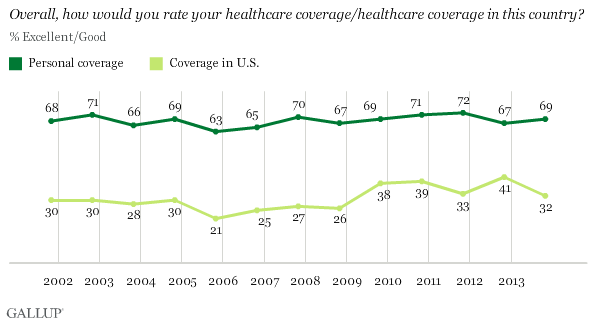First, according to a Gallup Poll, “69% of Americans rate their personal healthcare coverage as excellent or good.” Second, “only 32% rate healthcare coverage in the country this highly.” Note that the percentage of people happy with their insurance has remained remarkably consistent over the last decade.
In other words, people are happy with their coverage, but realize that coverage for others is not good. The ACA’s solution to this latter number is to help those who have bad coverage by making it more expensive for everyone else. Or, to put it bluntly, make those 69% worse off to the benefit of the other 30%. This is, simply stated, redistribution.
But this was not how the law was sold. The president could not sell it as a form of redistribution. That word was verboten. The law was sold as a means to help everyone. Including the 69% of people who are happy with their health insurance. With 69% of people happy with their coverage, and a large percentage of them will see some change in their plans over the next few years, no wonder there is so much outrage.
And even assuming that post-ACA policies are in fact better, due to the endowment effect, and that people are loss-averse, losing something you already have will almost always be perceived as getting something worse.
If the American people were told that this law would require self-sacrifice, and sharing this collective burden, and they voted for representatives on this basis, the current outrage over the ACA would be weak. But the American people were sold this law on false premises, far beyond the “If you like your plan, you can keep your plan” meme.
